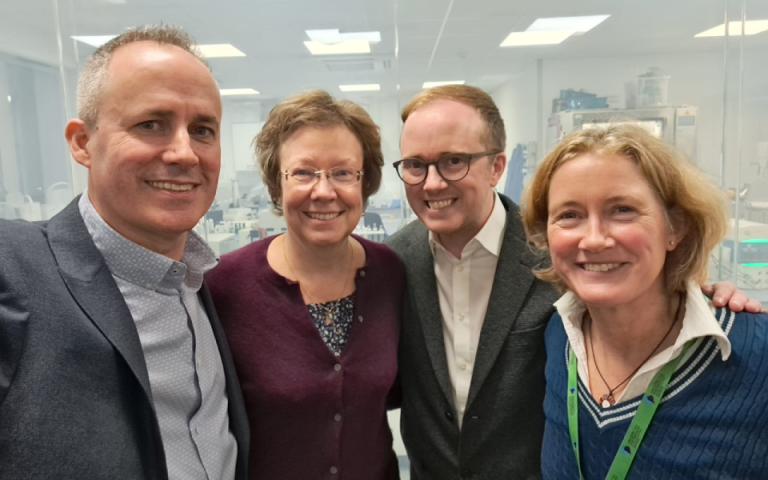Preventing Plastic Pollution with Engineering Biology
14 February 2024
UCL scientists will be leveraging engineering biology to tackle global challenges such as preventing plastic pollution and improving metal recovery and recycling, in new collaborative projects funded by the UK Research and Innovation (UKRI).

The Engineering Biology Mission Hubs and Awards, announced by the UKRI as a £100m investment, aim to harness cutting-edge engineering biology research from across the UK to address global challenges from health to the environment.
The six hubs, one of which features Professor Helen Hailes (UCL Chemistry), will receive up to £12 million each from the UKRI Technology Missions Fund and the Biotechnology and Biological Sciences Research Council (BBSRC).
The P3EB Mission Hub: Preventing plastic pollution with engineering biology
The P3EB Mission Hub aims to tackle the urgent environmental challenge of plastic pollution and create new ways for the sustainable deconstruction of synthetic plastics as the UK transitions towards a circular plastics economy.
The hub will be led by Professor Andrew Pickford (University of Portsmouth), with support from scientists from seven leading UK institutions, including UCL co-investigators: Professor Helen Hailes (UCL Chemistry), Dr Jack Jeffries (UCL Biochemical Engineering), Professor Mark Miodownik (UCL Mechanical Engineering), Professor Paola Lettieri (UCL Chemical Engineering), Dr Andrea Paulillo (UCL Chemical Engineering), Dr Brooks Paige (UCL Centre for Artificial Intelligence), Professor Christine Orengo (UCL Biosciences).
Plastics are synthetic polymers – chains of building blocks linked together by chemical bonds – that are not naturally found in the environment, and most are made from fossil fuels. Natural polymers however can be deconstructed by biological enzymes into their constituent building blocks (monomers).
Synthetic plastics are difficult to break down which means that plastic waste, once in the environment, becomes a persistent pollutant harming wildlife, threatening human health, and are of rapidly increasing environmental concern.
Over the next five years, the Mission Hub will develop impactful engineering biology platforms that will enhance the performance of enzymes and microbes for the deconstruction of a wide range of plastics.
Building on previous research from the Plastic Waste Hub at UCL, the project will also develop innovative and environmentally friendly ways to create high-value products from waste.
Alongside this approach, the team will develop sustainably sourced monomers to make future recyclable-by-design plastics, in support of the transition to a circular plastics economy.
These efforts will support UK businesses in meeting their carbon reduction goals, contribute to sustainable clean growth, and help incentivise plastic waste recovery and recycling to prevent pollution and the use of fossil fuels, from which most plastics are derived.
Professor Hailes said: “We are delighted to receive UKRI funding for this major engineering biology project. The P3EB Mission Hub brings together an exceptional team of researchers and innovators to develop new ways for the sustainable deconstruction of synthetic plastics and upcycling of the products formed”.
Dr Kedar Pandya, UKRI Executive Director, Cross-Council Programmes at the Engineering and Physical Sciences Research Council said: “Engineering Biology is one of the critical technologies for the UK strength and opportunity identified in the Innovation Strategy. It has the potential to change many aspects of our lives, from how we grow our food, to developing new medical treatments, and on through to clean growth that will develop more environmentally sustainable manufacturing processes and supply chains, as well improved diagnosis of, and cures for, environmental issues.”
Image
- PE3B team members (left to right): Professor Andrew Pickford, Professor Helen Hailes, Professor Stephen Wallace and Dr Louise Farrand
Links
- Original article on UCL News
- UK Research and Innovation announcement
- Professor Helen Hailes' academic profile
- Professor Mark Miodownik's academic profile
- Dr Jack Jeffries' academic profile
- Professor Paola Lettieri's academic profile
- Dr Brooks Paige's academic profile
- Professor Christine Orengo's academic profile
- Dr Andrea Paulillo's academic profile
- UCL Chemistry
 Close
Close

